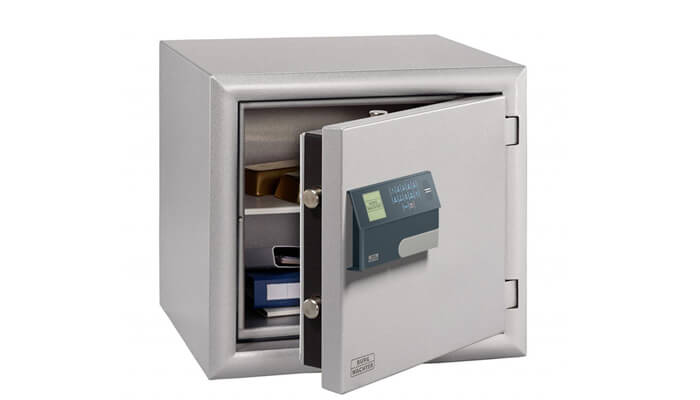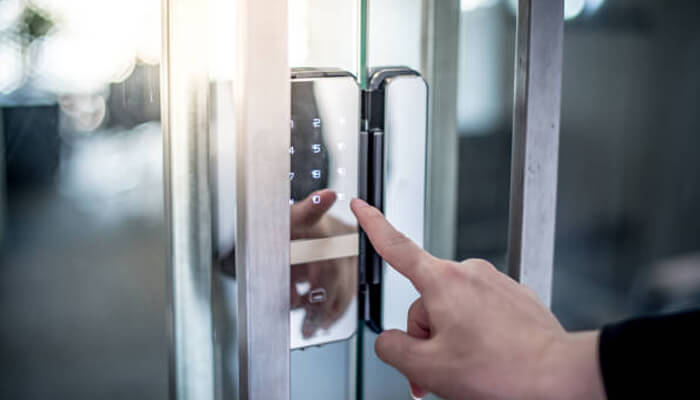The locking system on your safe makes all the difference when securing your items. For an ordinary buyer, the numerous safe locking mechanisms could make it hard to decide which best suits your needs. To help you decide the best type of lock, we will discuss the different safe locking mechanisms and give a few tips.
Types of Locking Mechanisms
There are several types of safe locking mechanisms. Here is a brief overview of each type of lock and how they compare.
Key Locks
These are the most common and basic locks on safes, especially home and drug safes. A key lock is a mechanical lock that needs a specific key to insert and twist to lock or unlock. Key lock safes are dependable, affordable, easy to operate, and low maintenance. There are also some dual-lock safes that need two keys to open and tend to be more secure than a single-key lock.
However, losing the key means you will be locked out of the safe. Also, due to possible misplacement or loss of the key, these locks are ineffective against theft because of burglars. Intruders can also easily pick the lock or duplicate the key if they access the original one.
Dial Combination
This is another common locking mechanism for most home safes. These locks require the user to input specific numbers to access the safe. They are common and reliable and can either be mechanical or electrical.
Most combination locks are strong and don’t need frequent maintenance. Nevertheless, it needs concentration and focus to unlock, which some people may find difficult. They are also rarely user changeable, and you will need professional services to reset codes.
Digital Lock
A digital locking mechanism is a great option for homeowners who find key locks inconvenient because they don’t want to carry keys around but find dial combinations overwhelming. With a digital lock, you only need to input the digital code through the access panel. The panel is easy to read and illuminated when in the dark.
Digital lock safes are fast to open due to the easy unlock method, and the combinations can be changed frequently. It is also easy for homeowners because they can change and generate access codes without professional assistance. However, it will block entry if you forget and enter the wrong code several times. Also, they need their batteries replaced frequently, at least once or twice a year. Failure to charge the batteries could result in being locked out of the safe.
Biometric locks
There are new biometric finger scan lock safes, which can be accessed through registered fingerprints. They allow several fingerprints to be registered. These locks are convenient because you don’t need to worry about keys or remember a code or combination or someone making a duplicate.
It is an effective, dependable, and secure locking mechanism because it’s impossible to counterfeit a fingerprint. But, should your fingerprint be damaged, wet, or dirty, you might be locked out.
How to Decide the Best Locking Mechanism for You
Now that you understand the different types of safe locking mechanisms, you can choose a lock that meets your needs. Here are four tips for you. First, determine what security level you need. The level of security will depend on the value of the belongings you need to store in the safe.
For example, a key or mechanical lock might be suitable if you only need safe storage for personal documents; but if you need to store sensitive business data, a higher security lock, e.g. a biometric lock, might be better. Also, a simple key safe will be better if you need a drug safe to store prescription medicine. But a dial combination lock might suffice if you need to store jewelry.
You can also assess your security level preference depending on the area your home or business is located. If your business is located in a high-crime area, you will need a more advanced safe lock to offer higher security than you would need in a safe area.
Second, consider your budget. Safes with advanced lock mechanisms like biometric locks tend to be pricier than safes with basic locks, e.g., key locks. So, choose a lock within your budget. Lastly, choose a lock that offers the convenience you desire. For example, if you need a lock that is convenient to open, a digital lock might be a better option compared to a combination lock.
The type of lock on a safe impacts its security. Sure, about which lock do you need? Shop for it today at Safes Australia. We have a versatile collection of home safes with key locks, digital locks, dial combination locks, and fingerprint scans on some models.



